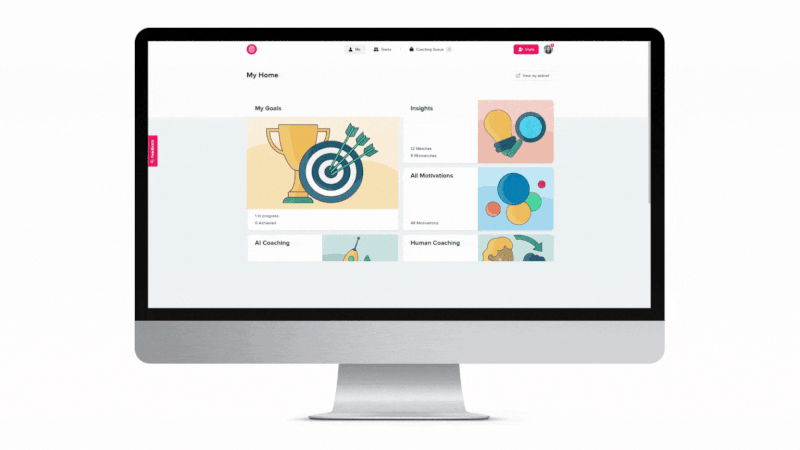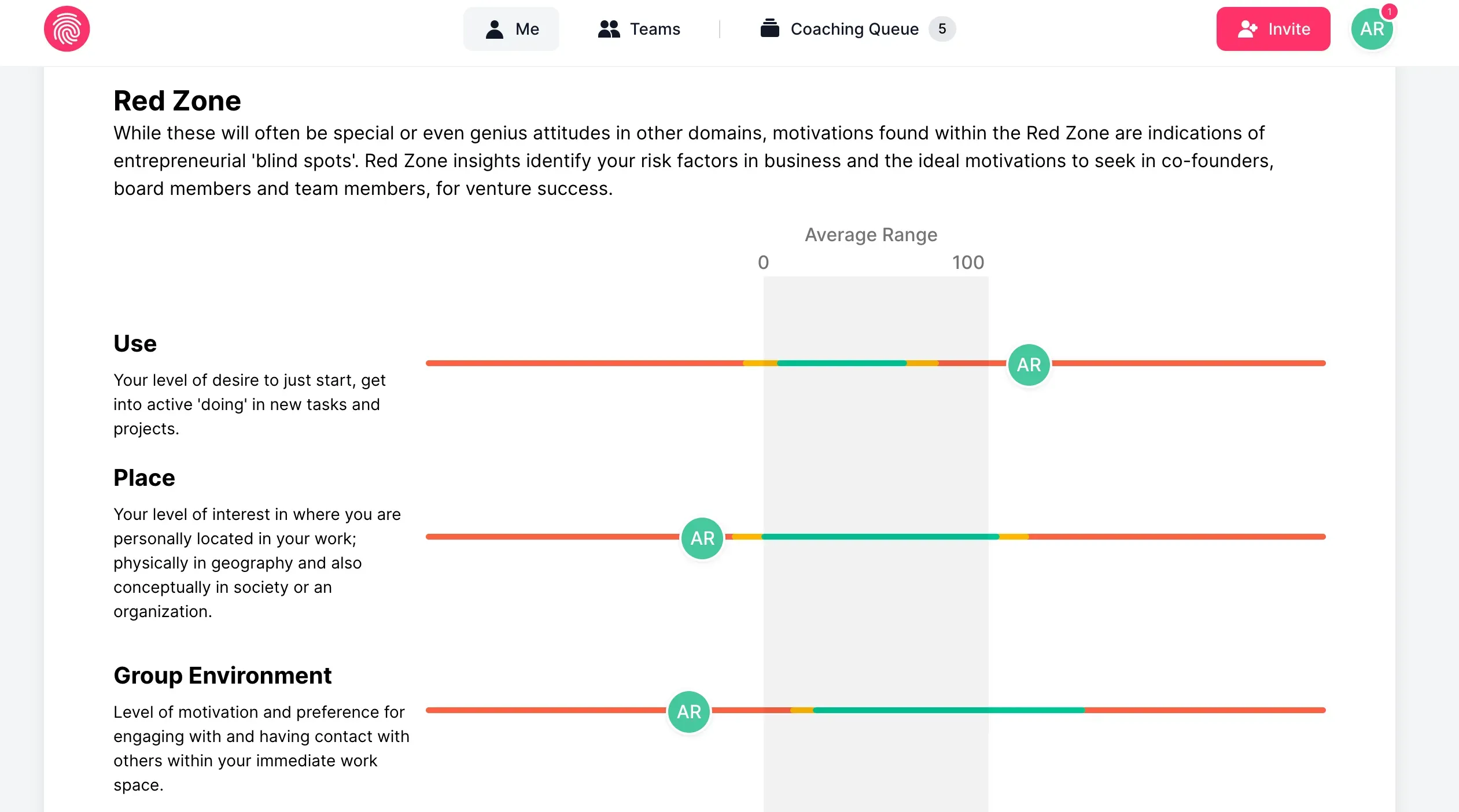Legitimate power: develop leadership skills at any level
Your boss has the power to give you a promotion and a higher paycheck.
- Author
Michael Metcalf

Your teacher has the power to fail you on a test.
Your mom has the power to ground you.
These are all types of legitimate power - control wielded by people because of their authority and position.
It's one of the most desirable forms of power, and if you're in a position of authority, or hoping to be in the future, you've got to use it correctly.
We'll explore what legitimate power is, how to use it responsibly, and how it differs from the other types of power you might be seeking. Then discover how you can become an effective leader and make a positive impact at work.
What is legitimate power?
Legitimate power is the ability to influence others through the use of position or authority.
It's derived from your role in an organization or society, and it's often accompanied by respect and admiration from others. Sometimes, you gain it through sheer luck, such as being born into a family that has existing power.
Other sources of power
Legitimate power is different from other types of power, such as expert power (that comes from having specialist knowledge or expertise) or reward power (the ability to give someone something they want), in that it doesn't always come from your actions.
There are three factors that contribute to the strength of legitimate power:
• Position: The formal position a person holds in an organization or society determines their level of legitimacy. For example, the CEO has more legitimate power than the HR Manager.
• Authority: Someone's authority is based on their ability to make decisions and enforce rules. For example, a judge has more authority than a lawyer in the courtroom.
• Credibility: A person's credibility is based on everyone else recognizing their power as legitimate and correct. For example, citizens of a country agree that the police act as formal authorities in specific situations.
What are the five types of power?
The five types of power are
- Reward power
- Coercive power
- Legitimate power
- Referent power
- Expert power
Legitimate power is easier to understand in context, next to the other types of power you can wield.
Legitimate power sits alongside four other types of power that were identified back in 1959, by influential social psychologists John French and Bertram Raven.
These are the ways in which a person can gain and exert power over other people in various social and professional contexts.
They're divided into two types: positional and personal.
We go into more detail on each power in leadership in our guide to the types of power, but here's how they work in short:
Personal power
This is the kind of social power you gain from the intrinsic value you bring to people; it means they like you, respect you, and can learn from your knowledge and wisdom. Because of this it is generally a voluntary cooperation, led by charismatic leaders.
- Expert power - when you're an expert in a particular field (also known as informational power - knowing things that others don't)
- Referent power - the 'soft' form of moral power gained when people like and respect you for being honest and trustworthy
Positional power
This is the sort of power you get from having a dominant position in a hierarchy. It's a sort of power that's difficult for people to object to.
- Coercive power - power tactics that comes from the threat of harm or severe punishments
- Reward power - the ability to give incentives, bonuses, or payments for certain behavior
- Legitimate power - power from titles and positions of influence
Legitimate power for leaders: a coaching plan
At Fingerprint for Success, we value voluntary cooperation that leads to harmonious relationships and see the value in various forms of power. We like to use our informational power in self-development and people analytics to help others.
We enable the innate talent and strengths people have by helping them develop their skills and focus on goals so they can thrive in life.
Typically, this enhances their personal power more than the positional, because we focus on skills that anyone can improve in, no matter what their position.
We have a coaching program dedicated to improving your Personal Power. This involves learning how to improve your day-to-day leadership abilities, navigating office politics and business hierarchies, and building up your confidence to step into a demanding role. So there's actually a good bit of crossover into the realm of legitimate power, too.
The skills we teach through our coaching programs can improve your ability to reach positions of legitimate power. Getting promoted or hired for a senior position is very much possible when you focus on enhancing your interpersonal influence.
The Big Picture Thinking program can help you grasp abstract concepts and come up with big ideas - perfect for mapping out ambitious strategic goals and convincing people to get on board with your plans.
Our Vital Wellbeing program supports your mental health and helps you improve your focus and energy. This includes feeling good about yourself and being confident that you're in the driver's seat with the resilience to cope with whatever challenges life throws at you.
That's the way we like to approach it; a bit more holistic. Improving your personal power helps build your legitimate power, which means you're in a position to wield both. If you're curious about the free courses we have available - all doable in eight weeks, via 5-15 minute lessons twice a week - have a look on our coaching page.
F4S personalized coaching programs
What are legitimate power examples?
Here are some examples of legitimate power, and how you can use your leadership position in a sensible and ethical way.
Business owner
By having the authority to hire, fire, and command people, the legitimate power inherent in being the owner of a business is crystal clear.
Employees know that you're the ultimate authority when it comes to their work welfare. In return for your training, guidance, regular pay, and benefits (generous ones, we hope!), they'll provide their labor and advice.
Head of state
Anywhere on the globe and you'll find a nation with a head of state or a political leader of some sort. They might be elected, installed by a government, seized power through violence, or have hereditary power granted by birth.
King Charles III of England is an example of the latter; while not elected, he does still wield legitimate power over the nation by virtue of being the leading monarch. This power is supported by the agreement of most UK citizens - an example of a collective social structure that enables the ongoing recognition of legitimate power.
People in positions of significant legitimate power can, of course, tip over into coercive power, where citizens are afraid of severe punishments if they go against their wishes.
But cultural norms, democratic processes, and historical constitutions all play a part in limiting a state leader's power, in case they take things too far.
Parent
A parent's influence over their child is an example of legitimate power that's granted and recognized without formal ceremony.
That power is usually tested when their child becomes a teenager; "you can't tell me what to do!" is a common sentiment from rebellious teens that are starting to question their trust in authorities.
In most cases, though, the legitimate power remains in the hand of the parent by the resources they control. Young Jayden may not drop out of school to join the circus, because mom pays his allowance and has the keys to the house.
How do you use legitimate power effectively?
When we think of gaining power through legitimate authority, it might bring to mind images of despotic dictators, ruling over their respective kingdoms with iron fists while doling out severe punishments. This sort of rule goes hand in hand with coercive power: influencing people through fear and threat.
The authority that comes with legitimate power can be benevolent, and we hope that's what you're aiming for.
The relationship between power and humans has a long complex history. With the effects from power it can be tempting to go on a 'power trip' when you gain a position of authority. In order to have a positive impact, keep in mind the following:
Remember to be a successful leader
Power alone does not make a good or successful leader. Most of us know that from first-hand experience.
Effective leadership is a crucial skill and an entire discipline in itself. If you're curious to know your leadership style, F4S can help. (We'd recommend starting with servant leadership if you're not already familiar - it's a model for building strong organizations through service to others.)
We've created an evidence-backed assessment tool (based on 20+ years of research) that reveals your highest motivations and your greatest areas for areas for improvement.
Here's how you can get started:
1. Uncover your motivations
Take the free F4S assessment to access a detailed report of the 48 motivations that influence your work—and find out how you score on each trait.
This will provide you with deep insights into your strengths and blind spots, backed by world-first research into workplace motivation.

F4S dashboard
2. See how you compare to high performers in your role
Within your F4S dashboard, click on the XFactors tab to benchmark your results against our sample of global Entrepreneurs and Business Builders.
Click on "Red Zone" to see you where you rank outside the scores that align with success in these roles. You'll see your areas of genius and your learning opportunities, which we can blind spots.

3. Develop your power and leadership style with free coaching plan
We believe anyone can develop their leadership skills and build legitimate authority. We'll help you set and achieve meaningful professional goals.Then receive targeted coaching through our AI-powered Coach Marlee, which was developed by expert coaches, including our founder, Michelle Duval.
We even have a Personal Power program where you can learn how to foster cooperation and take your place as a leader in your industry.
By being a competent leader you can navigate potential conflicts and have a direct impact on your team and workplace. Your colleagues will give their all and over time, your organization will thrive.
Develop interpersonal relationships
Your purpose as an authority figure is to serve the group members you represent. Powerful leaders, especially those who have legitimate power, need to have a positive influence on others. Doing so requires strong interpersonal skills. They lead with charismatic power that inspires others to follow them. This includes efficiency in written and verbal communication, understanding body language, and emotional intelligence. WIth these skills leaders can resolve conflict and manage crisises.
Legitimate power, when intended to help others, involves developing the role of trust between you and the people you work with. When trust is lacking, so can your power of position. In an organizational context, this can mean following the rules and standards that you ask others to follow. It's always a good idea to lead by example.
Your position of power is temporary
Your authority won't last forever. Whether it's through changing environments, new opportunities, or even a layoff.
Humility and grace are your secret weapons here. See yourself as a temporary steward of an honorable position, responsible for serving others more than yourself. When your time is up, it's over. It's best to meet this transition with voluntary cooperation so there is a smooth transition. Then take some time to rest and refresh your skills, and get back out there when the time is right.
What are the advantages of legitimate power?
There are a few key advantages to using legitimate power as your main source of influence:
First, it's the most visible and readily accepted form of power. Whether that comes from a job title, societal status, political position, or a badge and a fancy suit - people know you're the real deal. Legitimate power is usually immediately visible, and if not, you'll soon be told about it by others under its influence.
Second, it builds trust and relationships. When people feel like they're being heard and that their concerns are taken seriously, they're more likely to show cooperative behavior. This creates a positive feedback loop where your legitimacy is reinforced by the good work you enable people to do.
Your authority as a 'resource controller' comes into play when you can use it to help people develop and flourish; for example, paying for their professional development will make them better workers and is likely to foster more loyalty.
Finally, it doesn't encourage much pushback. When it's obvious that you're the one in charge, someone disagreeing with your direction can't overtly challenge your authority. They can take action against you indirectly or with underhand methods. But unless you're really pushing the boundaries of what's acceptable, having a badge of authority is one of the best ways to influence people to achieve a common goal. (Situations like these are what the phrase "with great power comes great responsibility" was made for.)
What are the disadvantages of legitimate power?
While it's one of the most desirable forms of social influence, legitimate power isn't without its drawbacks. Some of the potential negative effects of legitimate power are:
The possibility of tipping over into coercive power. Depending on the hierarchy and structure of the organization you're wielding influence in, you may end up with free reign to take control. This might appeal to the megalomaniac in all of us (or at least some of us), but unchecked control can easily be taken advantage of. It's up to you to be responsible and do the right thing to the best of your abilities. Again, the role of trust is crucial.
It also has the ability to dissuade open conversation and collaboration. This generally isn't a good thing, especially in environments that thrive on openness and cooperation. While you might be a likable and trustworthy leader, in a position of legitimate power you will always have the ability to bring down negative consequences for those underneath you. This means your very existence might stifle debate and healthy conversation if people are afraid of what'll happen to them. You'll have to continuously work hard to build an organizational culture where problems can be discussed openly without fear of censure or punishment.
One threat of having legitimate power is that it can make it hard to trust people. It's one of the most coveted types of power, and many people will lust for your coveted seat. You'll have to learn how to trust your intuition and develop strong relationships with people who will have your back.
Finally, legitimate power is often hard to get. By definition, only a small number of people in any given population will gain legitimate power, so if you really want it, you'll have to work hard. That might be through education and qualifications, building up financial capital, campaigning politically, building relationships, or navigating office politics.
You'll probably need to be exceptionally good at what you do to climb the ladder and become a legitimate leader. But that's not to dissuade you; setting ambitious goals and achieving them is something anyone can do if they're genuinely motivated.


